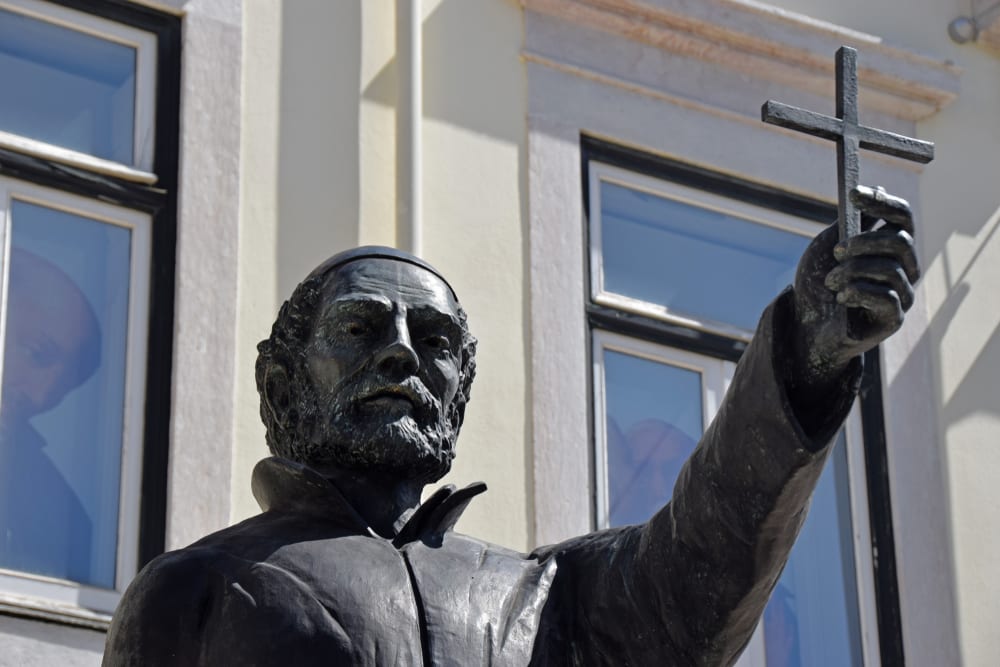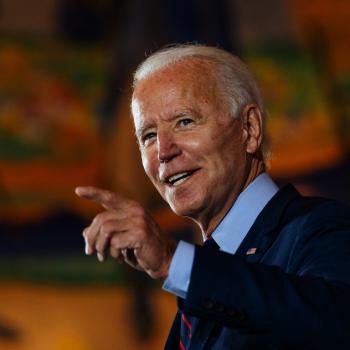The scandal of sexual abuse allegations continues to ripple through the tendrils of the church like a particularly baroque domino run, to the point where there’s almost nothing new to be said about it anymore. The latest pieces to come crashing down are in Spain, where the Society of Jesus has become the first to reckon with the problem… and honestly, the most astonishing thing about this story is the fact that they’ve made it all the way to 2021 without addressing it.

The order, more commonly known as the Jesuits, held a press conference last week to mark the release of their first “safe environment” report (PDF, in Spanish). In addition to expert consultations to help identify areas for improvement, the project involved two years of research into the order’s history of sexual abuse within Spain: an effort to reckon with the scope of past abuses in order to prevent future ones.
Their research confirmed that 96 abusive priests within the Jesuit order amassed more than 100 victims since 1927, a far greater number than originally estimated based on public disclosures. Nearly 70% of those victims were children at the time when the attacks took place.
(Considering that the Jesuits as a whole are known for running parochial schools, that percentage seems a little on the low side.)
Of the priest-offenders identified by the inquiry, whose names were not made public, only 17 remain alive today. Four have left the order; the 13 who remain Jesuits to date have been removed from positions near children. Some are awaiting the results of criminal or canonical proceedings. Others have already been found guilty and sent to live out their retirement in isolated religious communities.
The Spanish victims’ association Infancia Robada (Stolen Childhood) says it welcomes the disclosure, but urges skepticism about the numbers. The data in the report was gathered primarily through the Jesuit archives, augmented with newspaper reports and testimony from bystander priests. The commission opened an email address to collect the allegations of still-living victims, but chances are good that many abuses have been lost to history.
Juan Cuatrecasas, president of Infancia Robada, points out that disclosure of sexual violence — particularly against priests — was actively discouraged in the past, leaving the official record incomplete:
They seem to have forgotten that victims don’t report abuse when they want to — it’s something they only do when they can. In 1927, no one would have been able to report something like this. We appreciate the effort that the Jesuits have gone to by diving into the past and providing dates and statistics, but this should be seen as the very beginning of something else, of acknowledgement and recognition.
The report took a broad understanding of sexual assault, ranging from inappropriate conversations to instances of rape, but it confirms that most of the reports involved sexual contact. That makes sense. Given the barriers to reporting, it’s unlikely that victims would speak up on the record about any but the most clear-cut and egregious cases.
It also means that there are likely many more victims and perpetrators than the order’s research efforts could possibly hope to uncover.
Still, it’s a beginning… and that’s well and good, as long as it doesn’t become the end. Some victims have expressed concern — justified, if you’re familiar with some of the Church’s past dealings — that reports like this will be offered up in lieu of real justice or compensation for the victims.
If they’re serious about disclosure, and not merely throwing a handful of used-up priests under the bus, the Jesuits need to release perpetrators’ names, says Infancia Robada spokesperson Miguel Hurtado. The missing information makes it impossible for the public to trace the careers and movements of individual abusers, concealing the hierarchy’s complicity in their ongoing crimes:
[The current report] is a timid measure that goes in the right direction, but it falls too short… Once again, the report gives the impression that the abuses arose by chance, by bad luck, not as a result of a policy of institutional cover-up implemented for decades.
The Jesuits say their decision to withhold the offenders’ names was made with victims of abuse in mind. Many explicitly mentioned fears of being outed as victims if their abuser’s name became public.
They also expressed some concern that priests whose abuse was relatively minor would be judged as equivalent to those whose crimes were most egregious, a slightly less sympathetic concern.
During the press conference, the Jesuits’ Father Provincial Antonio España emphasized that this is only the beginning of a lengthy process, and asked those involved to forgive him and his organization for “the insufficient responses given in the past” and “the enormous pain caused to the victims and to their families.”
The next step, they say, will involve figuring out how to make reparations to the people harmed by the abuse. That will be the proving ground that demonstrates how much of the Jesuits’ penitence and commitment to change is borne of a real values shift, and how much is simply a PR apparatus that’s learned to make the right noises.
(Image via Shutterstock. Thanks to Scott for the link)




It’s Moving Day for the Friendly ..."
It’s Moving Day for the Friendly ..."
It’s Moving Day for the Friendly ..."
It’s Moving Day for the Friendly ..."